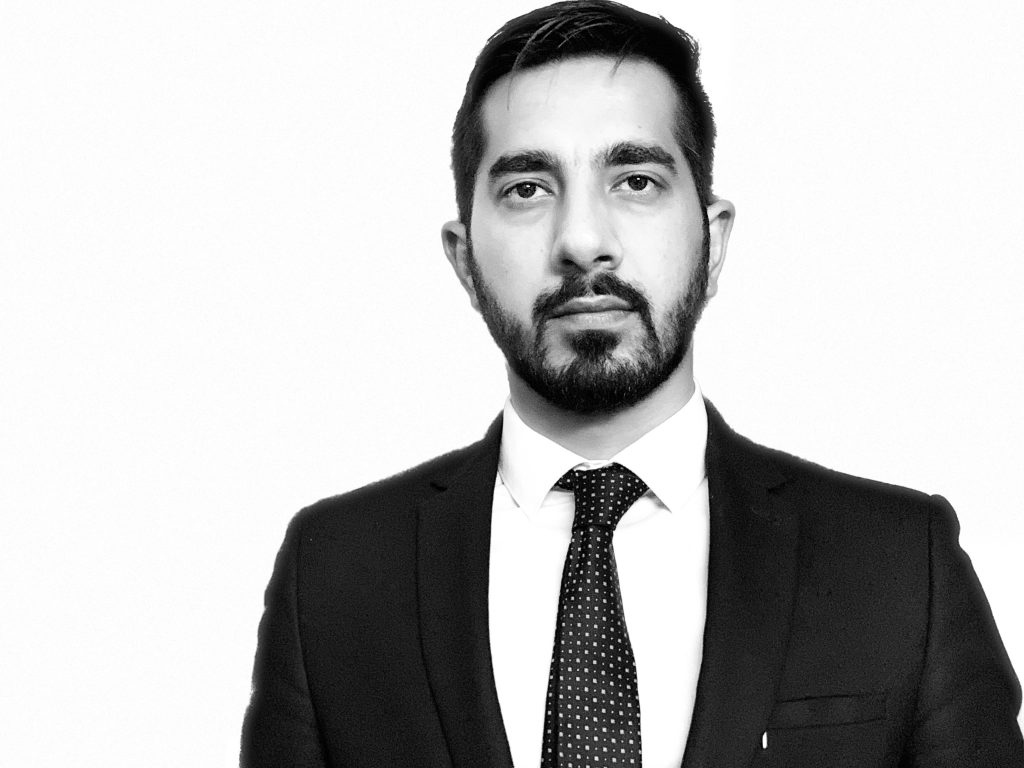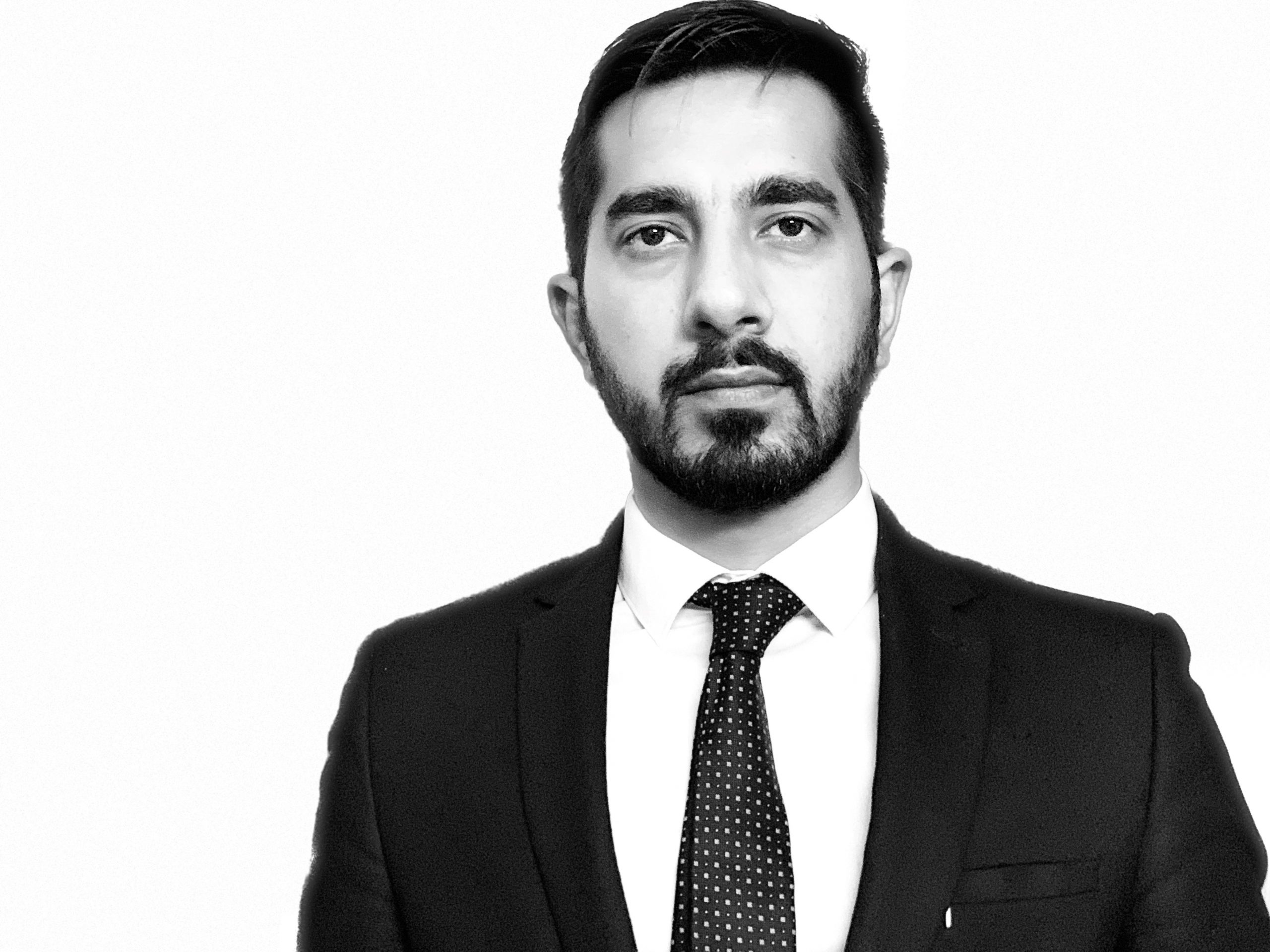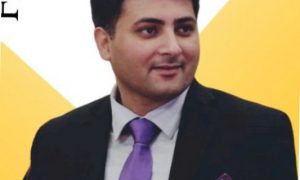This interview has been published by Priyanka Karwa and The SuperLawyer Team

Can you share a bit about your background and what motivated you to pursue a career in law, especially in areas like Corporate Criminal Liability and White-Collar Crime?
- I completed my five-year integrated law degree from Panjab University, Chandigarh in 2012. I belong to a family of non-lawyers, but my sister, who is also a lawyer, inspired me to join the legal profession and showed me its various aspects. I did not have a clear career goal when I was young, unlike many of my classmates and the current generation of students. The only career options I heard from my parents were engineering or commercial airline pilot. Thankfully, my sister guided me towards the law field and helped me make a wise decision.
- I started my legal career as a civil lawyer, focusing on Intellectual Property Rights, at the district court level. That was the stage where I discovered my true passion and direction in the law field. Later, I got the chance to work with HMJ Sanjeev Narula, who was then the standing counsel for various government bodies and also had his private practice. He mentored me at the Delhi High Court and exposed me to various fields of law including White-collar and corporate criminal matters. I gained valuable experience working for agencies like the Serious Fraud Investigation Office, Central Bureau of Investigation, the Enforcement Directorate, Directorate of Revenue Intelligence, and others.
- When he was elevated, I changed my path and joined Luthra and Luthra. The firm gave me a different perspective and I started representing corporations and individuals instead of government agencies. I think your goals evolve over time, especially after you find out what you are good at or enjoy in the profession. Nowadays, as it has been for the last few years, the motivation that drives me is the intrinsic nature and complexity of an issue or a dispute, which challenges you to come up with creative solutions.
You’ve had a diverse legal career working in different domains such as international commercial arbitration, indirect taxation, and intellectual property rights. How did you develop expertise in these various areas?
I always liked the idea that a lawyer is a jack of all trades and master of none. I discovered early in my career that I had a curiosity to explore more than one area of law. This notion was reinforced when I worked with Mr. Narula on various matters involving different fields of law. His office had a wide range of work, and I got the chance to experience multiple aspects of law. I enjoyed working on new things as it kept my interest alive and my thinking sharp. So, it’s the opportunities that I got and the skills that I developed for them along the way that led to my diverse portfolio. I would say I am the opposite of today’s profession that requires specialization.
Could you describe some of the most challenging cases you’ve worked on, particularly in the context of corporate criminal liability and white-collar crime? What were the key takeaways from those experiences?
- One of the most memorable cases that I recall is the series of petitions that challenged SFIO’s power to arrest for fraud under the Companies Act 2013 when it was notified. I was still working for the government then and SFIO had started taking action against individuals and corporations for committing fraud under the companies act after the notification of its arrest powers. It reminded me of the old days (company law board), when I used to assist Mr. Narula in the petitions filed by the government against Satyam computers. Those were the cases where SFIO had done thorough scientific investigation into the affairs of a company, but due to the lack of authority under the old companies act, the agency could only submit a report before the tribunal and seek civil remedies. This changed with the new companies act and especially in 2017, when the arrest powers were notified. SFIO then had broader powers, similar to those exercised by the Enforcement Directorate under the PMLA. With new powers came new challenges to those powers and we had to defend the SFIO’s powers before the Delhi High Court. Since the provision was new for the agency and for us, working with them to overcome the legal obstacles raised by the Petitioners gave us a lot of insight into how these agencies function.
You have extensive experience representing the Central Government. Could you share some insights into working on high-value matters related to sensitive issues, such as policy, treaty investment, and enforcement matters?
- I had the opportunity to represent the government in various policy decisions, including its foreign trade policy, international trade protective measures (countervailing duty, safeguard duty – Anti-dumping), investment treaty arbitration matter et.al. One of the most fascinating and enriching learning experiences was when the government introduced the goods and service tax regime in 2016. At that time, I was still navigating my way around the existing indirect tax regime under the Central Excise act and the Finance Act. With the overall shift from a structure that was in effect for decades, it brought a lot of new challenges, ranging from interpretation to implementation to enforcement and so on. That was one of the moments when I witnessed the government and the judiciary being pragmatic and flexible in their approach with the sole aim to assist the assesses.
- Then there was the most unique proceeding that the government initiated when Vodafone decided to initiate a second investment treaty arbitration against India, which was based on similar facts. This was the situation where the host country filed a proceeding before its own courts to restrain a foreign investor from proceeding with an arbitration under a Bilateral Investment Protection Agreement, which according to the host was nothing but an abuse of process. This was essentially my first encounter with issues arising out of international vis a vis domestic law – the overlap, comity of courts and the contours of investment protection agreements. Although the government did get the relief it sought – under the proceedings, despite the case being decided against it, the Delhi High Court rendered a judgment covering a lot of issues for the very first time.
- One of the most intriguing issues in the enforcement aspect would be the power of agencies like the ED, DRI under the PMLA & Customs Act to record the statement of a person that can be used as evidence against them in a court of law. This is a tremendous power that is somewhat similar to the powers exercised by the Police under the CrpC, but the absence of similar safeguards in their parent statutes made it a very interesting aspect to work on.
Arbitration is one of your main areas of practice. What are some key considerations for businesses and individuals when choosing between domestic and international arbitration? How do you navigate the complexities of multi-jurisdictional shareholders’ disputes?
- The reasons for choosing arbitration are constantly changing, but I have seen my domestic clients choose arbitration for a faster dispute resolution mechanism that promises them a quick resolution, especially when the courts are overloaded with their own backlog. However, these reasons are no longer valid as the post award proceedings before the courts cause significant delays that take years before there is any final determination on the disputes. On the international arbitration front, the demand is very simple: neutrality from a legal system that may favor one over the other.
- The multi-jurisdictional disputes raise complex issues of jurisdiction, arbitrability of disputes, conflict of laws, enforceability across various legal systems that often become difficult to navigate. The sensible solution is to work with your domestic counterparts who can give you a better insight on the legal system prevailing in their jurisdiction, rather than trying to re-invent the wheel.
You’ve represented clients on a wide range of issues, including cybercrime and social media. Can you elaborate on the legal challenges and strategies associated with these areas, especially with the ever-evolving landscape of technology and privacy?
- Cybercrime is a technical and dynamic phenomenon that poses a serious challenge to the law enforcement agencies. They need to be sensitized and equipped to deal with the various forms and manifestations of cybercrime, such as deep fakes, cyber hate, cyber terrorism, and cyber radicalization, which are constantly evolving and outstripping the existing legal norms and standards. They also need to collaborate and coordinate with other national and international authorities to effectively investigate, prosecute, and deter cybercrime, which often transcends the conventional boundaries and categories of the Indian Penal Code.
With your extensive experience in litigation, could you share some insights on how you approach complex contractual and commercial litigation, as well as constitutional matters?
- To handle a complex contractual and commercial litigation, start by grasping the contractual relationship and the commercial transaction at the core of the dispute, along with the applicable legal principles and rules. Then pinpoint the main issues and disputes between the parties, and the potential remedies and reliefs that are available or sought. Based on the facts, evidence, and law, devise a clear and coherent strategy and argument to advance or defend the case. Most importantly, prepare and present persuasive and well-structured pleadings, submissions, and oral arguments, and counter the opposing party’s contentions and objections effectively. Moreover, if need be, explore and pursue alternative dispute resolution methods, such as negotiation, mediation, or arbitration, when appropriate and feasible, to achieve a satisfactory and cost-effective outcome. On the other hand, constitutional matters require identifying and raising the constitutional issues involved in the case, and analysing the relevant precedents and their applicability to the facts. The case also needs to be tested on the basic principles, such as jurisdiction, alternate remedy, delay, and latches, which may affect the admissibility and merit of the challenge. The level of difficulty and scrutiny of the challenge may vary depending on the facts of the case.
In your role as a Partner at your firm, you must provide valuable advice to your clients. What are the essential qualities and strategies you employ to provide practical and effective legal advice?
- As a Partner at my firm, I have the responsibility and privilege of providing valuable advice to my clients on various legal matters. Some basic tenets that I stick to while doing that is to first and foremost listen and understand their needs, expectations, and concerns with the aim to identify the key points and issues that require consideration. I use my knowledge and experience to evaluate the strengths and weaknesses of their case. All of this is done to provide them clear and concise advice (sometimes frank) with accurate and relevant information – which includes explaining the legal principles and rules, the possible outcomes and consequences, and the pros and cons of different options and strategies.
Finally, as someone with a wealth of experience in the legal field, what advice would you give to fresh law graduates who are just starting their careers in the legal profession?
- The legal profession is a diverse and dynamic field that offers various challenges and opportunities. You may need to try different options and acquire new skills before you find your ideal practice area or job. Don’t be scared to experiment with new things, especially in the initial year, and adjust to changing situations. You may discover new passions and interests that you never expected. You may not always get the guidance or support that you need, but you can always look for resources and mentors that can help you. Don’t wait for opportunities to come to you but try to create them yourself. Don’t depend on others to solve your problems but find your own solutions. There may be times when you may have to handle complex and sensitive issues and deal with a lot of information and documents. Be cautious and meticulous, reliability and consistency will take you a long way. Never forget, that the legal profession is based on relationships and ethics and requires a high level of integrity and courtesy. You need to be respectful and civil in your communication and respect the rights and views of others, especially your seniors.
Get in touch with Abhishek Ghai-
























